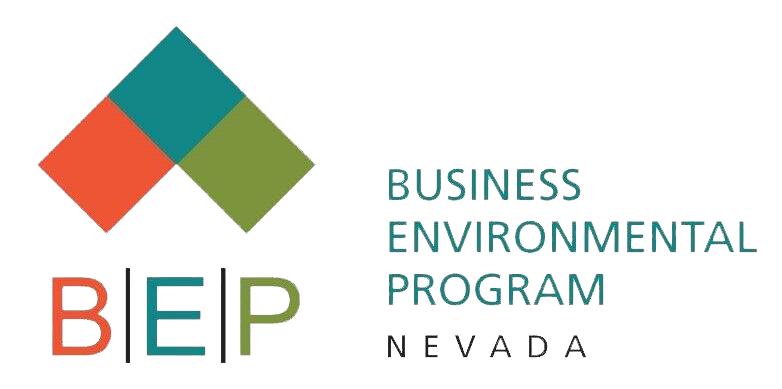Whether you are a new business moving to Nevada or and existing facility expanding your operations, knowing which air quality permit you may need, if any, is necessary in order for your facility to operate in Nevada.
Does My Business Need an Air Permit?
There are many types of businesses that could require a state or federal air permit for their operations. If you emit air pollutants such as particulates, dust, fumes, gases, mist, smoke, vapors, or odors it is likely that you could need an air permit to operate.
Consider the following questions:
- Do you have something with a stack, dust collector, or vent?
- Example: abrasive blasting, wood and metal sanding, grinding, and crushing
- Do you use a process that includes paints, varnishes, solvents, adhesives, or other chemicals?
- Examples: painting and coating, solvent cleaning and degreasing, and floor cleaning
- Do you use a process that burns fuel (e.g., oil, natural gas, coal)?
- Examples: boilers, furnaces, incinerators, emergency generators, and heat-treating units
- Is there an area at your facility that produces visible dust or smoke?
- Examples: construction and demolition activities and material handling
Some examples of types of businesses and pieces of equipment that commonly require an air quality permit are listed below:
- Incinerators
- Boilers for space or process heating
- Stationary diesel engines such as those used for generator or compressors
- Stationary engines used to generate power from landfills or anaerobic digesters
- Electric utility power plants
- Bulk gasoline storage (not including most retail gasoline dispensing stations)
- Industrial processes such as:
- wood furniture manufacturing
- spray coating operations
- dust generating activities
- metal plating operations
- plywood and veneer manufacturing
- concrete cement batching
- hot mix asphalt production
- mineral mining
- processing operations such as rock crushing and/or screening operations
Which Agencies Regulate Air Quality in Nevada and Issue Permits in Nevada?
Clark and Washoe counties operate their own air quality management programs with separate permitting processes.
Clark County: Clark County Department of Air Quality
(702) 455-5942
Washoe County: Northern Nevada Public Health, Air Quality Management Division (formerly known as Washoe County Health District)
(775) 784-7200
For all other areas of Nevada, air pollution regulations and permitting requirements are enforced by the Nevada Division of Environmental Protection’s (NDEP) Bureau of Air Pollution Control. Contact information:
Nevada Division of Environmental Protection’s (NDEP) Bureau of Air Pollution Control
(775) 687-9349
Types of Permits
BEP is here to help. Our staff helps take the confusion out of air quality permitting and regulations by providing free and confidential assistance. To get a better understanding of which air quality permit you may need and how to apply, contact us.
NDEP Jurisdiction
If you are located in NDEP’s jurisdiction, there are different types of permits that are dependent on the amount of emissions your facility is releasing. Class I permits are usually reserved for very large operations such as large mines, whereas Class II permits are more applicable to the smaller operations located throughout Nevada such as paint shops, foundries, and small mining operations. Even if you are below the emission thresholds for both Class I and Class II, it might still be important to submit an Applicability Determination.
The permit categories below give a more in-depth explanation about the quantities required for each class of permit. The category of the permit is a link to the PDF for that permit application; click on them to access the PDFs.
The following thresholds are a guide to the various air quality permit types for NDEP:
- Class I – Typically for facilities that emit more than 100 tons per year for any one regulated pollutant or emit more than 25 tons per year total HAP or emit more than 10 tons per year of any one HAP or is a PSD source or major MACT source.
- Class II– Typically for facilities that emit less than 100 tons per year for any one regulated pollutant and emit less than 25 tons per year total HAP and emit less than 10 tons per year of any one HAP.
- SAD – Surface Area Disturbance of >5 acres.
- General / COLA – Temporary portable equipment for road and highway construction at a location < 12 months.
- Applicability Determination– This application is for facilities that do not release enough emissions for a Class I or Class II Air Quality Operating Permit.
Washoe County Jurisdiction
BEP is now offering in-depth assistance with air quality compliance & permitting issues and questions in Washoe County.
If your business is located within Washoe County and will emit 2 or more pounds per day of criteria air pollutants or 1 pound or more per day of hazardous air pollutants, you will need an air quality permit. The Northern Nevada Public Health Air Quality Management Division has several permit applications depending on the type of facility you operate.
Examples of these include gas dispensing, fuel burning equipment, and internal combustion equipment. If none of these permit applications fit your business, you will need to complete the general air quality stationary source permit application.
All of the applications can be found here. You can reach out to the BEP team and we can assist you with understanding your regulatory requirements and preparing your application.
Clark County Jurisdiction
Information on the permits required in Clark County can be found here.
Additional Information
Air Permit Application Preparation
Download our BEP Air Permitting brochure.
